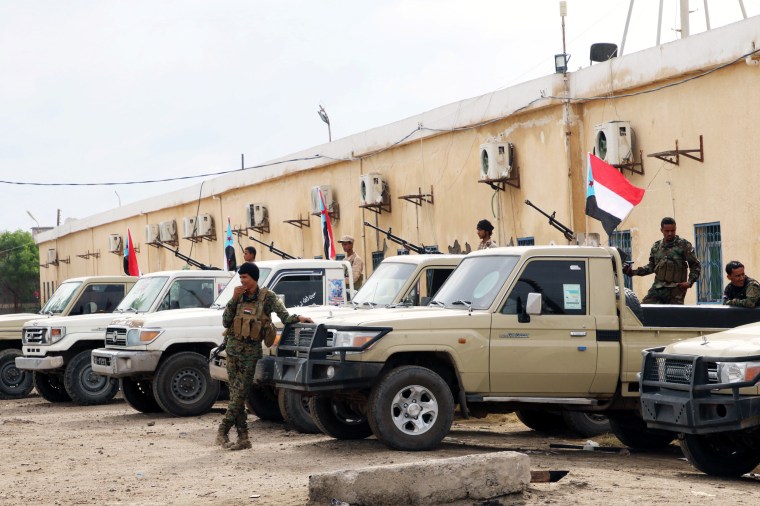New York, February 8, 2021 – Yemen’s breakaway Southern Transitional Council should release journalist Adel al-Hasani immediately and stop arbitrarily detaining and harassing members of the press, the Committee to Protect Journalists said today.
On September 17, 2020, at a checkpoint between the southern cities of Aden and Abyan, security forces with the Southern Transitional Council detained al-Hasani, a reporter and fixer who works with international outlets including the BBC, CNN, and Vice, according to two people close to al-Hasani, who spoke to CPJ on the condition of anonymity, citing concern for their personal safety, a report published today by HuffPost, and a 2018 interview al-Hasani gave about his work with the travel-writing website Roads and Kingdoms.
The Southern Transitional Council, a secessionist group backed by the United Arab Emirates, controls much of southern Yemen and has repeatedly clashed with the Saudi-backed Yemeni national government, according to news reports.
Al-Hasani is being held in al-Mansoura Prison, a facility in Aden run by the transitional council, according to the people who spoke to CPJ.
“Adel al-Hasani’s months-long detention for no discernible reason other than his work covering the ongoing conflict in Yemen is further evidence of the grave dangers faced by the press throughout the country,” said CPJ Middle East and North Africa Senior Researcher Justin Shilad. “The Southern Transitional Council must release al-Hasani immediately and stop targeting journalists.”
Al-Hasani was seized after he helped secure the release of two European journalists, who were detained for about a week in mid-September in the Red Sea port city of Mocha, according to the people who spoke to CPJ and HuffPost. CPJ was not aware of the European journalists’ case until after their release.
One of the people close to al-Hasani told CPJ that the Southern Transitional Council accused him of supporting Al-Qaeda and the Islamic State militant group, but they believed he was actually targeted because he was widely known to have worked with foreign journalists as a fixer.
The other person familiar with al-Hasani’s case shared an audio message purportedly recorded by al-Hasani on February 1, in which he said he was supposed to have been released, but that there was unspecified pressure to keep him in prison. In the message, he said that he was being detained only for his journalism, and that it was not possible to work as an objective journalist in Aden.
CPJ could not independently verify the authenticity of the recording.
The source who shared the recording also said that al-Hasani had been beaten, suspended from the ceiling, and subject to sleep deprivation during his detention. They said that the Southern Transitional Council criminal prosecutor’s office told them that al-Hasani was supposed to be released, but the office was unable to release him because of political pressure from the Southern Transitional Council and the United Arab Emirates.
When CPJ contacted Mansour Saleh, vice president of the Southern Transitional Council’s media department, for comment via messaging app, he said yesterday that al-Hasani had a criminal case against him and he would respond with further details. He did not respond by the time of publication.
CPJ also emailed the United Arab Emirates’ Ministry of Defense for comment, but received a notification that the account was not functioning.
Journalists have been detained by groups throughout Yemen in recent years, with Ansar Allah, commonly known as the Houthis, holding at least four journalists since 2015, and other groups detaining journalists as well, according to CPJ research.
